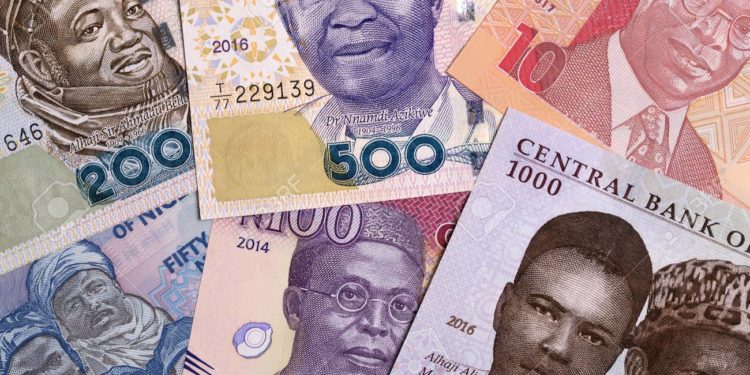Many stakeholders and experts have expressed their concerns over the Federal Government’s (FG) plan to enforce a 5% Value Added Tax (VAT) on all online transactions. Many of these industry stakeholders opined that the move would constitute a threat to businesses that operate in the country, particularly those in the e-commerce industry.
Recall that the Chairman of the Federal Inland Revenue Service (FIRS), Tunde Fowler, revealed that the Federal Government would by 2020 commence the VAT charges as part of plans to raise more revenue to fund the country’s budget.
What this means: If the proposed directive is implemented, payment providers, credit cards and other electronic payment schemes will hold back 5% VAT on any transaction between a consumer and an online seller. This is where e-commerce comes into play.

[READ MORE: CBN Governor finally breaks silence on FOREX restrictions for food imports]
Rise of e-Commerce: It is common knowledge that Nigeria is fast growing in terms of cashless, digital payment, and electronic banking system services.
- With ATM transactions dominating the volume of electronic transactions and the Nigerian Inter-Bank Settlement System Instant Payment dominating in value, the demand of electronic transactions has attracted payment investors from Europe and Asia, who are investing in the country’s payment systems.
- Nairametrics understands that the e-commerce industry is one that has quietly grown into a significant economic force in Nigeria, as some business ventures rely solely on their digital operations.
- In view of increasing digital purchases in the country, American consulting firm, McKinsey estimated that e-commerce spending in Nigeria is presently at $12 billion and projected to reach $75 billion in volume per annum by 2025.
Looming threat: Should the 5% VAT charges on all online transactions are effected next year, the growth of the country’s FinTech industry will slow down. Presently, Nigerians are gradually responding to FinTech initiatives, and despite all the campaigns, quite a number of people are still not financially included.
- Just recently, the Central Bank of Nigeria (CBN) raised Nigeria’s financial inclusion target to 95% from 80% set in 2012 and extended the target year to 2024 from 2020.
- Earlier in the year, the CBN had expressed optimism that the 80% financial inclusion target will be reached by 2020.
- With one year to the 2020 target and recent data from Enhancing Financial Innovative and Access (EFInA) indicating that 36.8% eligible Nigerian adults still do not have access to financial services as of 2018, the likelihood of achieving the 80% financial inclusion target by 2020 became slimmer and necessitated the review.
- While FinTechs are filling the gap between the consumers and e-commerce businesses, they (FinTechs) will experience a significant threat, as consumers would rather opt for the traditional method of making a payment, which may not necessarily incur the 5% VAT on their purchase.
On the other hand, the e-commerce businesses would opt for putting in place infrastructure that would enable non-digital payments to sustain the growth of their customer base.
[READ ALSO: Beer Wars: International Breweries takes number 2 market share from Guinness Plc]
Bad criticism: The Federal Government’s disclosed plan to introduce 5% VAT on online transactions has attracted criticism from Nigerians and industry stakeholders. Nairametrics engaged some tax experts to get their opinions.
- Omotolani Ashiru, Lead, Internal Audit, Compliance and Tax at UPS, stated that while this will be a good development for the government as revenue would increase, it is not a good time for Nigerians.
- Ashiru said necessary infrastructure, sensitization and other necessary requirements are not yet available in Nigeria.
- She also added that in the case of the VAT charges on an online purchase, there will be issues of multiple taxation as some e-commerce platforms like Jumia are already charging VAT on their sales since there are no mechanisms in place for the banks to separate VAT inclusive services and products from non-vatable transactions.
- The tax expert further stated that the online purchase tax proposal appears at odds with Nigeria’s long-held ambitions for a cashless economy, given the possible effect of dissuading online purchases.
She maintained that if launched, it also adds to a growing number of existing charges which Nigerian bank cardholders already pay, including the card maintenance fee.
What lies ahead: When asked on the future of e-commerce, should VAT be charged on digital transactions, Ashiru said that the entire industry will experience a decline in sales as consumers would find alternative means of purchase.
- This, according to her, will also lead to a decline in the use of cards online. Ashiru said there’s no other way to look at the proposed policy than to see it as a card payment killer.
- Ashiru, however, expressed that what the FIRS should instead focus on is tracking and ensuring the remittance of VAT already being charged by online merchants.
- While the Head of tax and OTC, Expand Global Industries Limited, Ikenna Amanze, isn’t sure about the government’s intention to introduce the 5% VAT charges on online transactions, the former tax consultant to KPMG, opined that the move will cripple e-commerce businesses in the country.
Similar to Ashiru’s point of view, Amanze stressed that consumers would rather not purchase goods online, which poses a significant drop in sales or would rather opt for the traditional model of paying for anything they want to purchase, which renders the Federal Government’s commitment to financial inclusion useless.
Amanze also stated that should the VAT charges be effected, double VAT charges on consumers are certain, as most e-commerce companies at present charge you for VAT. According to Amanze, consumers would rather transact with cash to avoid the VAT charges.
“The VAT charges will affect e-commerce. I believe a number of people will rather want to make cash payment and this means that the eCommerce guys will have a lot to deal with, like the risk of theft. Essentially, this will aggravate the cost profiles of these guys. Because what it means is that they will develop infrastructure to be able to handle cash and I’m not sure they will want to do that since there is already a cost to handling the cash. They would not want the third merchants to handle their cash as I don’t think there is any infrastructure for that yet.”
[READ FURTHER: 5 things Buhari’s new Finance Minister must do within 100 days]
The upshot: While the Federal Government’s decision to expand its tax net for the sake of revenue increment, as against increasing the VAT rate to 10% is laudable, it is pertinent to note that the move doesn’t make any economic sense at present.
As Ashiru stated, going by a recent report by the United Nations (UN), 98 million Nigerians are now living in multidimensional poverty. Normally, in this regard, the government’s focus should be on putting in economic policies to drive and boost local trade and income, as against putting more tax burden on already poor citizens.























“In simple terms, when you try to send a family member N50,000, the Federal Government is entitled to N2,500 which you will be charged as VAT.”
The above analysis is incorrect. There is no VAT on money transfer. The only VAT applicable to transfers is the VAT on transfer charge.
VAT is charged when value is exchanged for money. So only online trade transactions will fall under the net.
So does this mean it will not affect me when i use a Fintech app?
I think people are either being deliberately narrow minded or just too lazy to read about the proposed taxes online payments especially as it relates to e-commerce merchants. When you pay for Dstv on Quickteller or for Spectranet internet on Jumia One, these companies don’t charge taxes for these transactions. These are services that they are providing that at the least they should be charging the customary 5% VAT upon but they don’t. Try buying stuff on Amazon or Ebay and you will see taxes applied with different rates for different states. If your buying or selling items on an e-commerce site, its the same as at Wuse or Balogun market only the venue is virtual. Therefore, government is entitled to tax you. All these war mongering to stir up tensions is not helping.